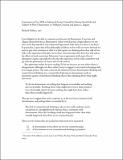Comments on 'Free Will as Advanced Action Control for Human Social Life and Culture' by Roy F. Baumeister, A. William Crescioni and Jessica L. Alquist
Author(s)
Holton, Richard
DownloadHolton_Baumeister.commentary.pdf (82.99Kb)
OPEN_ACCESS_POLICY
Open Access Policy
Creative Commons Attribution-Noncommercial-Share Alike
Alternative title
Response to ‘Free Will as Advanced Action Control for Human Social Life and Culture’ by Roy F. Baumeister, A. William Crescioni and Jessica L. Alquist
Terms of use
Metadata
Show full item recordAbstract
I am delighted to be able to comment on this piece by Baumeister, Crescioni and
Alquist (henceforth BCA). Baumeister’s earlier work has had a huge influence on my
own, and I find myself in very substantial agreement with what BCA have to say here.[superscript 1]
In particular, I agree that if the philosophical debate on free will is to move forward we
need to pay close attention to what it is that agents are thinking when they talk of free
will, to the experiences that give rise to their conviction that they have free will, and to
the effects of such conviction. Moreover, I am in agreement with most of BCA’s
substantive claims, especially the idea that the experience of free will is somehow tied
up with the phenomena of choice and of self-control.
Date issued
2009-07Department
Massachusetts Institute of Technology. Department of Linguistics and PhilosophyJournal
Neuroethics
Publisher
Springer-Verlag
Citation
Holton, Richard. “Response to ‘Free Will as Advanced Action Control for Human Social Life and Culture’ by Roy F. Baumeister, A. William Crescioni and Jessica L. Alquist.” Neuroethics 4.1 (2009): 13–16. Web. 27 June 2012.
Version: Author's final manuscript
ISSN
1874-5490
1874-5504